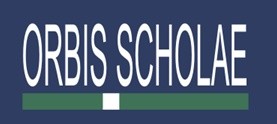Measuring the self-efficacy of in-service teachers in Slovakia
Measuring the self-efficacy of in-service teachers in Slovakia
Author(s): Peter GavoraSubject(s): Education
Published by: Univerzita Karlova v Praze, Nakladatelství Karolinum
Keywords: self-efficacy; teacher self-efficacy; in-service teachers; the Teacher Efficacy Scale (TES)
Summary/Abstract: The paper describes the construct of teacher self-efficacy, which draws on Albert Bandura’s social-cognitive theory. Self-efficacy is defined as teacher judgement about teacher’s capacities to bring about the desired outcomes of instruction. It has been proved in many studies that high self-efficacy positively affects pupil’s motivation and learning. The process of adaptation of the Slovak version of Gibson’s and Dembo´s Teacher Efficacy Scale (TES) is described in detail. The wording of scale items as used in our earlier research (Gavora 2009, 2010) has been altered to reflect the more internal/external orientation of TES dimensions rather than personal teaching efficacy/general teaching efficacy dimensions. The new version of the TES was factor-analysed to assess its construct validity, and reliability coefficients were calculated. A sample of 217 teachers in 5 regions of Slovakia filled in the TES. The data were categorized according to teachers’ years of practice, gender, and the level of school (primary/ lower secondary). The findings are not dissimilar from those in North American and Western European studies showing that (1) an above-average level (as assessed theoretically) of perceived self-efficacy of teachers is a characteristic of the majority of in-service teachers, (2) general teaching efficacy scores are lower than those of personal teaching efficacy, (3) in-service teachers are superior to the pre-service teachers in our previous sample (Gavora, 2009, 2010) in terms of personal teaching efficacy but not in general teaching efficacy, and (4) likewise, female teachers are superior to male teachers in personal teaching efficacy while no statistical difference was detected in general teaching efficacy.
Journal: Orbis scholae
- Issue Year: 5/2011
- Issue No: 2
- Page Range: 74-94
- Page Count: 16
- Language: English

